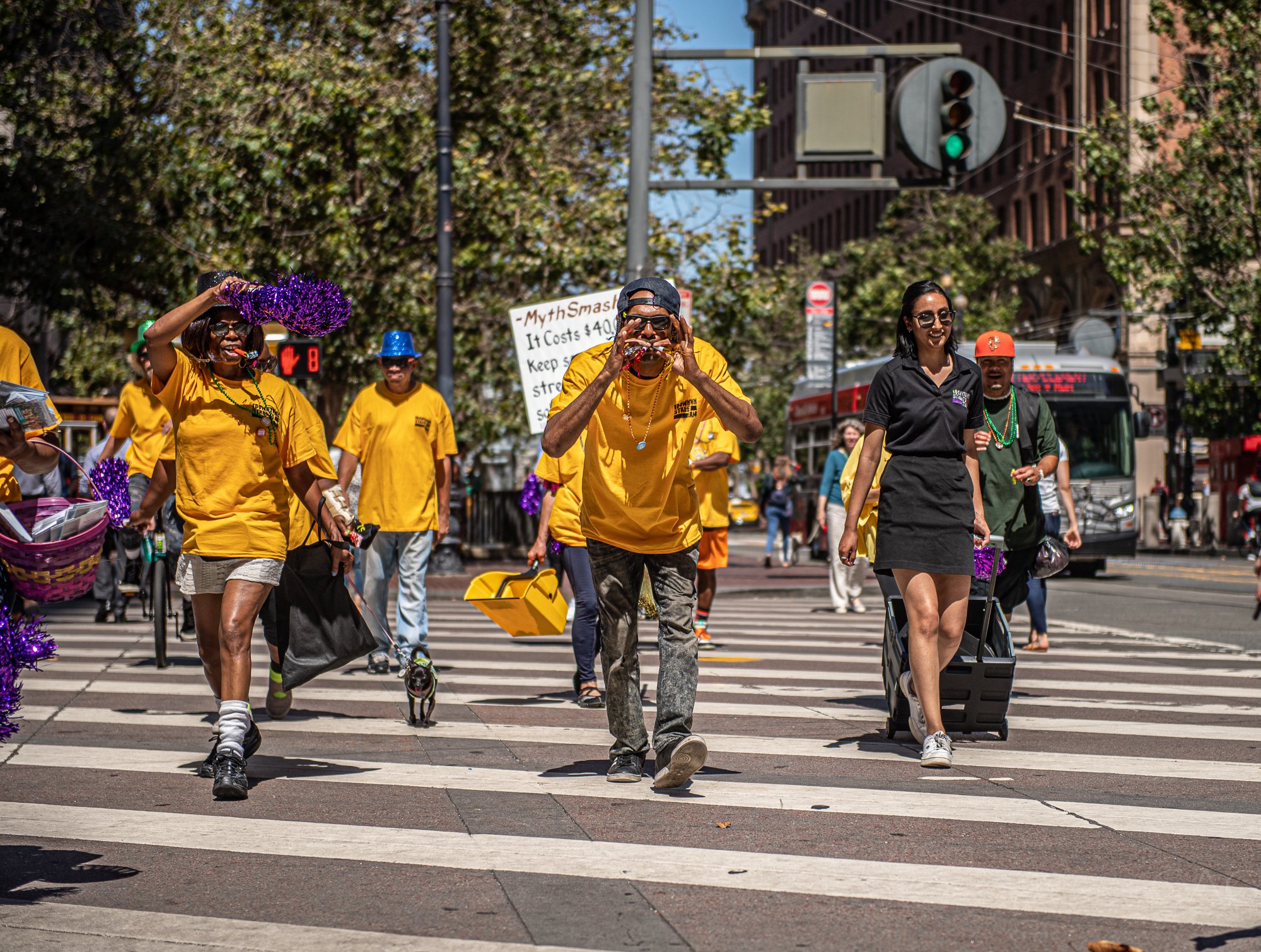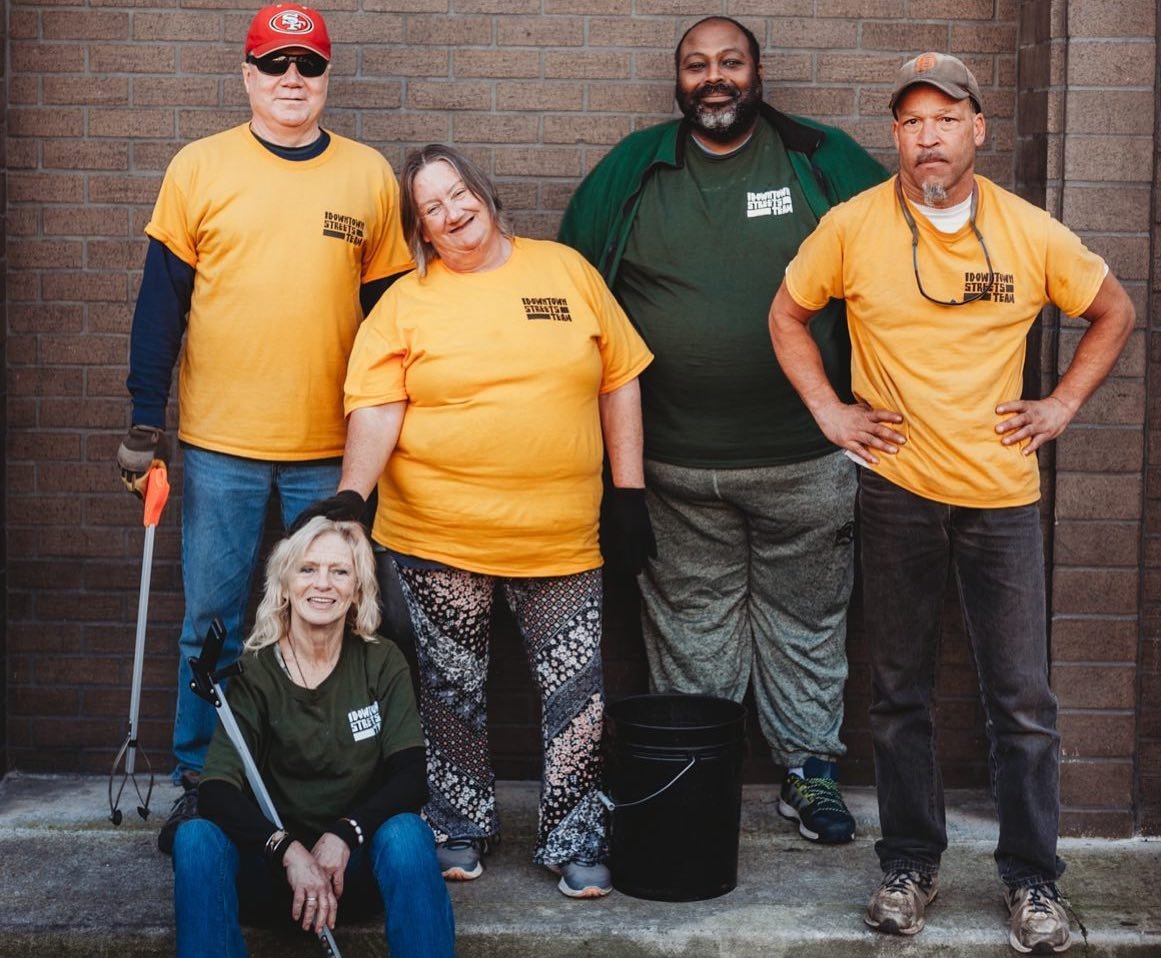
About Us
Our Mission
Downtown Streets Team builds Teams that restore dignity, inspire hope, and provide a pathway to recover from homelessness.
Team Members are unhoused neighbors or folks at risk of experiencing homelessness.They receive access to case management, system navigation, and employment placement services from trained DST Case Managers and Employment Specialists.Teams engage in community beautification and clean-up projects that help challenge common negative perceptions of homelessness.
Our Locations
We operate in 16 communities across Northern and Central California. The cities listed below are home to DST Teams. Click on a location to learn more.
Sacramento
Salinas
San Leandro
San Jose
Santa Cruz
Sunnyvale
Vallejo
West Sacramento
Our Team Members
Team Members are individuals experiencing homelessness or at risk of homelessness. They hear about our services through peer-to-peer interactions and street outreach done by our staff. Click the button below to meet some of these amazing people.
Our Staff and Board
The staff at Downtown Streets Team is a group of passionate and eclectic world-changers who care deeply about making the world a better, cleaner place that is more equitable for all of the people in it.
Our Commitment to Belonging
We believe that homelessness is not an identity, but an experience shaped by intersectional identities.
DST’s commitment to belonging and inclusion not only reaffirms self-worth and inspires hope but also supports recovery from homelessness and fosters a workplace where everyone feels truly valued. We are committed to creating an environment where each individual – regardless of background, identity, or life circumstances – experiences dignity, inclusion, and respect. Through equitable hiring and training opportunities, compassionate support, and an inclusive workplace culture, we aim to break down barriers, amplify diverse voices, and build a strong foundation for belonging, growth, and collective success.
A History of Downtown Streets Team
DST was founded in Palo Alto, CA, in 2005 in response to the growing need to support individuals experiencing homelessness, while also addressing the issue of street litter. Thus, a program that incentivized our unhoused neighbors to beautify the community while receiving basic needs stipends and compassionate support transformed into what is now DST.
Since inception, DST has received various recognitions such as the “Top 50 Innovations in Local Government” from Harvard’s Kennedy School’s Ash Center for Democratic Governance for the Voluntary Work Experience Program.
In 2018, DST’s flagship program was named one of only five “Evidence-Based Best Practices in Ending Homelessness” in the State of California, according to the Homelessness Task Force Report released by the League of California Cities and the California State Association of Counties.
Now, DST serves 16 communities which provide work experience to adults facing:
Homelessness or risk of homelessness
Justice-impacted
Systemic trauma
Out of the workforce for an extended period of time




